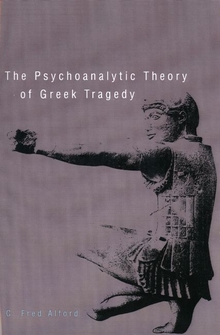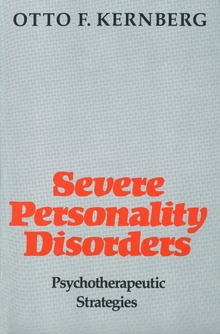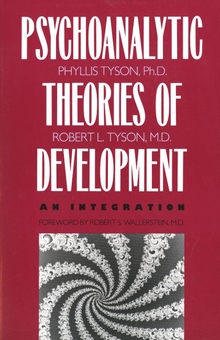Melanie Klein and Critical Social Theory
WARNING
You are viewing an older version of the Yalebooks website. Please visit out new website with more updated information and a better user experience: https://www.yalebooks.com
An Account of Politics, Art, and Reason Based on Her Psychoanalytic Theory
C. Fred Alford
Kazik (Simha Rotem), who now lives in Israel, was an adviser to the mini-series Uprising and was the 1997 recipient of the Raoul Wallenberg Medal, given to those who have made extraordinary accomplishments toward liberty and human values. It is his voice saying, “I remember . . . when I said to myself, ‘I am the last Jew, I am going to wait for morning, I am going to wait for the Germans,’” that ends Claude Lanzmann’s film Shoah.
"Alford relates the ideas of Melanie Klein to social theory, moral philosophy, group theory, politics and culture. . . . He accomplishes his task admirably. . . . For many psychoanalysts . . . this book may be the opening gateway to the new ideas, new applications, and new appreciation of the contributions of Melanie Klein."—George H. Pollock, International Review of Psycho-Analysis
"An interesting volume. It is tightly reasoned, exact in its references."—Choice
"Alford’s ideas are interesting and well worked out. The book is good reading for the intelligent layman as well as for the Freudian psychoanalyst."—Elise W. Snyder, m.d., Yale Medical School
"Rarely does a scholar not in clinical practice achieve a thorough understanding of the nuances of psychoanalytic theory, as C. Fred Alford has done in his examination of Melanie Klein’s formulations on early mental processes. He demonstrates persuasively how such apparently private processes, pertaining to both aggression and reparation, can be used to illuminate social phenomena, politics, and art."—Vamik Volkan, m.d., Professor of Psychiatry and Director for the Study of Mind and Human Interaction, University of Virginia School of Medicine
"This is a fascinating project which must introduce Melanie Klein as a serious thinker to social scientists. It demonstrates the relevance of post-Freudian thinking as a supplement to Freud’s own work in this area. From my initial scan of his work, I think that Professor Alford’s reading of Klein may be a little eccentric in parts for the British Kleinian; nevertheless it is an impressive conceptual investigation for which Kleinian thought is an unusual, and hitherto underused, instrument. The idea that the project of the Frankfurt School ground to a halt because of the limitations of Freud’s work and that it can be rescued by resorting instead to the post-Freudian theories of Klein is elegant and utterly intriguing."—Dr. R. D. Hinshelwood, Consultant Psychotherapist, St. Bernard’s Hospital, Middlesex, England
"In this study Alford continues his inquiry, begun in his previous writings,into the relation between psychoanalysis and the Frankfurt School of Critical Theory—this time with a focus on the work of Melanie Klein. Alford contends that a Kleinian account might solve problems which the Frankfurt School addressed but could not resolve because of their adherence to Freud’s notion of eros rather than the Kleinian nexus of love-hatred. The high point of the book is the formulation of a Kleinian group psychology which contrasts the intimacy of private relations with the aggressive-manipulative quality of group life, in a manner reminiscent of Niebuhr’s Moral Man and Immoral Society. Crisply presented, Alford’s theoretical proposals are not doubt arguable—and deserve to be widely argued and discussed."—Fred Dallmayr, Dee Professor of Government, University of Notre Dame
"Regularly consigned to the backwaters of psychoanalysis, Melanie Klein has never received the recognition she deserves for the magnitude of her contributions to the mainstream of psychoanalytic thought. Alford’s comprehensive study goes far in redressing this historical injustice, not only demonstrating that Klein’s formulations provide the undergirding for many of the new directions in psychoanalysis, but also persuasively demonstrating the importance of her contributions to social and political theory."—Jerrold M. Post, m.d., Professor of Psychiatry, Political Psychology, and International Affairs, The George Washington University
"The author has written an important, closely-reasoned, and telling work which constitutes a significant contribution to critical social theory. . . . The author has performed a signal piece of work in emphasizing and detailing the putative application of Kleinian theory to critical social theory."—James S. Grotstein, m.d., Political Psychology
"Alford’s is an attractive Panglossian formulation, argued with considerable panache. . . . Alford’s book performs a valuable service."—Martin Stanton, Times Higher Education Supplement
"A well-written, engaging, theoretically original book which theorists of bureaucracy and organizations, emotion, and the self can ill afford to ignore. . . . The concerns of the Frankfurt School are the concerns of Alford’s ambitious social theory. Showing that a Kleinian-inspired social theory can address these concerns is his way of showing that Klein needs to be taken seriously. [The book] . . . should help sociologists understand the importance of object relations for any theory of human development and collective life."—Jerome Rabow, Contemporary Sociology
"[Alford] has made a valuable contribution to the dialogue between psychoanalysis and social theory. Others would do well to follow where he has led."—Eugene Victor Wolfenstein, Journal of Politics
Publication Date: September 10, 2001








